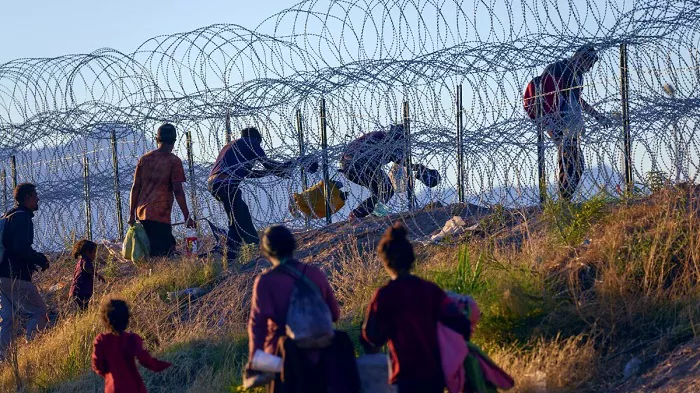The United States’ stringent immigration policies under the Trump administration have had far-reaching effects on American society, according to critics who warn that the aggressive enforcement measures are fracturing communities and undermining the country’s traditional values of diversity and inclusion.
Undocumented immigrants who have lived and worked in the U.S. for years are being deported in large numbers, disrupting families and communities and leaving labor shortages in small businesses, farms, and factories. Some individuals have reportedly been labeled as gang members based solely on tattoos and sent to high-security prisons without due process. Administrative errors have led to the wrongful arrests of innocent people, including U.S. citizens.
International students and academics have also been affected. According to the American Immigration Law Association, approximately 4,700 international students recently lost their visa status over minor infractions, such as traffic violations. In some cases, scholars and professors have been forced to leave mid-semester without clear explanations. One recent incident involved a Korean professor at the University of Houston who was abruptly ordered to leave the country, leaving students confused and concerned.
These developments have left many international students and scholars living in fear, with some choosing to abandon their studies or careers in the U.S. altogether. Observers warn of a growing “brain drain” as talented professionals in science, academia, and the arts seek opportunities in more welcoming countries. Critics argue that the erosion of core American values — freedom, inclusion, and opportunity — is accelerating.
This climate has prompted reflection on immigration policies in South Korea as well, where a similarly rigid approach has drawn criticism. Despite facing demographic pressures from a declining birthrate and aging population, South Korea continues to treat most immigrants as temporary laborers, offering limited pathways to permanent residency or citizenship.
Social integration remains a significant challenge. Public attitudes toward immigrants, particularly those from non-Western countries, are often marked by racism and xenophobia. Government efforts to address these issues have been minimal, and refugee acceptance rates in South Korea remain among the lowest globally. The country’s asylum system is frequently described as opaque and inefficient.
Although South Korea favors skilled workers from Western nations, low-wage migrant workers who support key sectors like agriculture and manufacturing often endure difficult conditions and lack adequate legal protections. Marriage migrants — many of whom are women from Southeast Asia — are especially vulnerable to discrimination and exploitation.
Analysts note that while attracting high-skilled professionals is important for economic growth, South Korea struggles to compete with other nations in retaining top talent. Many Korean scientists and researchers themselves are seeking opportunities abroad due to unfavorable working conditions and limited funding. Cuts to research and development budgets under the former Yoon Suk Yeol administration have further exacerbated the exodus of talent.
With a shrinking population threatening its long-term stability, South Korea may need to reconsider its immigration strategy. Experts argue that a more inclusive and forward-thinking policy could help the nation address its demographic and economic challenges. In a global environment where countries like the U.S. appear to be turning inward, some believe South Korea has an opportunity to demonstrate leadership by embracing immigration as a tool for national revitalization.
Related topics:
- Nationwide Protests Erupt in Germany Over Immigration and Ukraine Support
- Europe Faces Population Challenges: Integration of Immigrants Key to Sustaining Economies
- Top 5 Immigration Changes from Trump’s First 100 Days


